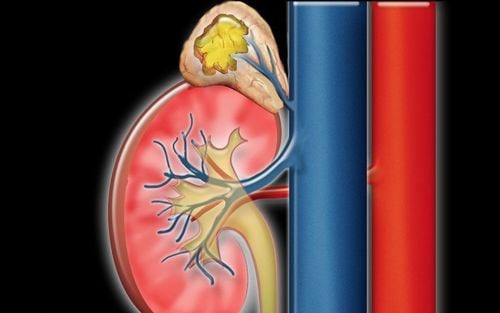This article was professionally consulted by an obstetrician and gynecologist at Vinmec Hai Phong International General Hospital.
Progesterone is a natural hormone related to the thickness of the uterine lining in a woman's body. During pregnancy, this hormone will increase naturally to adapt to the development of the fetus in the uterus. However, in some cases, high progesterone levels can lead to a series of unwanted reactions.
1. Causes of high progesterone
High progesterone levels are common in pregnant women. As the fetus develops, progesterone levels also increase. During pregnancy, if progesterone levels are too high, multiple pregnancies (twins, triplets, etc.) may occur.
Common causes of high progesterone levels in women:
- Changes in the menstrual cycle (prolonged luteal phase)
- Reduced estrogen levels in the body
- Excessive progesterone supplementation (oral or transdermal progesterone)
- Excessive supplementation with other progesterone precursors or precursors
- Problems related to the adrenal glands, as well as other hormonal imbalances.
In addition, when progesterone levels increase, the cause can also be a sign of underlying diseases such as ovarian cysts, ectopic pregnancy, ovarian cancer.
2. Symptoms of high progesterone

These symptoms are more common when progesterone levels are high, but not too high. Slightly high levels can come from taking too much progesterone or during the luteal phase of the menstrual cycle.
Common symptoms include:
- Weight fluctuations (usually a slight gain of 5-10 pounds).
- Drowsiness, waking up groggy or tired.
- Feeling down but not too depressed.
- Feeling physically unwell, a little dizzy, anxious or just feeling stressed.
- Fluid retention, bloating.
- Changes in sex drive (usually decreased sex drive).
Less common symptoms that usually only occur if progesterone levels are too high:
- Hot flashes (due to estrogen receptor overload)
- Insomnia
- Increased appetite
- Excessive anxiety or panic attacks
- Depression
- Significant weight gain
If you have signs of a hormone imbalance, your doctor may order a progesterone test to check. The best time to do a progesterone test is 7 days before your period or 7 days after ovulation. This is when high progesterone levels can be detected.
3. Tests for high progesterone levels
Check the BBT basal body temperature chart:
- This is the process of recording basal body temperature every day to capture information related to the menstrual cycle.
- After ovulation, women have a condition of increased body temperature but stable and slightly increased.
- If the temperature is irregular or continuously high, there may be a high progesterone index.
Luteal phase length:
- If ovulation is less than 11 days before menstruation, this may be a sign of a defect related to the luteal phase.
- Ovulation can be detected through the use of an ovulation detector, or BBT chart.
Salivary hormone testing:
- Endocrine tests can be performed through saliva testing.
- After analyzing saliva, the laboratory can determine whether progesterone levels are high or low.
Test Your Blood Hormone Levels: While saliva hormone testing can be convenient and non-invasive, blood hormone testing can help determine some important information about your body.
4. How to Treat High Progesterone Levels

Treatment of high progesterone largely depends on the cause. Therefore, progesterone tests are needed to determine the cause of high progesterone levels so that appropriate treatment can be given.
Hormone replacement therapy:
- This form of treatment involves taking hormone-containing medications to address the progesterone imbalance.
- It is important to note that hormone replacement therapy has many negative effects and can increase the risk of blood clots, breast cancer, stroke, and heart disease.
Herbal remedies:
Some women may want to try herbal remedies to control symptoms associated with high progesterone levels. The two herbs that are most likely to be effective are:
- Phytoestrogen-containing herbs, such as black cohosh, provide plant estrogen compounds to the body, helping to eliminate hormonal imbalances.
- Non-estrogen herbs, such as macafem, support the endocrine glands to increase hormone production.
Note, do not use these herbs without a doctor's prescription.
Change your lifestyle to maintain hormone balance:
- Exercise regularly.
- Eat healthy, eat foods that increase estrogen in the body such as soybeans, cherries, potatoes, wheat, rice, apples.
- Along with stress-reducing practices such as meditation and yoga.
When there are signs of suspected high progesterone, you should choose a reputable clinic. Doctors will examine and may order you to do a test to evaluate progesterone levels.
To arrange an appointment, please call … or make your reservation directly HERE. You may also download the MyVinmec app to schedule appointments faster and manage your reservations more conveniently.













